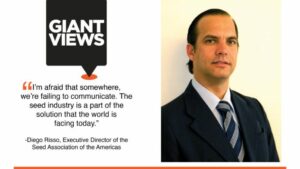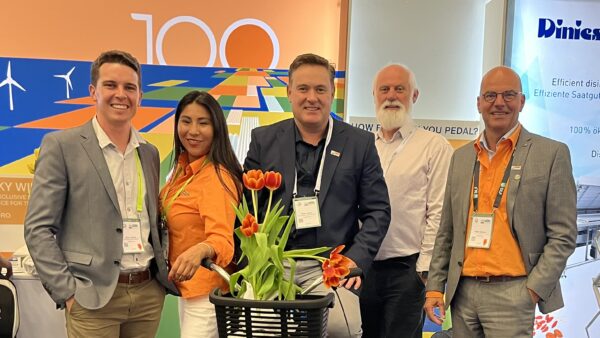For its first in-person event since 2018, the Seed Association of the Americas has expanded its agenda to include new topics focusing on business and trade.
When planning the upcoming 8th Seed Congress of the Americas, Diego Risso and his team at the Seed Association of the Americas (SAA) were faced with a big challenge: how to properly welcome people back to an in-person event for the first time since 2018.
The Congress, held every two years, traditionally focuses heavily on regulatory matters that affect the seed industry on two different continents. Risso and his team knew this event would have to be different.
“We of course wanted to keep the regulatory focus of the event, but also put an emphasis on trade and doing business. This has been in demand from our members, but also from seed companies outside the Americas. Judging by our registration numbers so far, there is a lot of interest in this expanded agenda,” says Risso, executive director of the SAA.
In a sit-down interview with Seed World Group’s Shawn Brook, Risso says the SAA Congress — taking place Sept. 26-28 in Punta del Este, Uruguay — is back in a big way.
This two-and-a-half-day congress will gather regional seed professionals, seed leaders, breeders, researchers, policy makers, government officials and students, in an extraordinary opportunity to learn, connect, generate new business, promote your products and learn about the latest innovations.
Sessions will focus on some main areas of the seed business: innovation, environment, social and economic sustainability, facilitation of the seed movement and the importance of communication.
Specific topics include gene editing, it’s uses, benefits and opportunities it presents. Risso notes that Argentina was one of the first South American countries to have gene editing regulations in place. Shortly after, Brazil, Colombia, Paraguay, Chile, Honduras and Guatemala all developed regulations stating that if no foreign DNA is found in the final product, the resulting product will be considered non-GM. Canada in the United States have taken similar regulatory paths.
“Gene editing means opportunities and competitive advantages for our farmers, and definitely for our economies. It also means that we need good communication between regulatory offices in different countries. That brings predictability to our industry, to ensure everyone is on the same page. Now that regulations are in place, seed companies are investing in developing new technologies through plant breeding innovation,” Risso says.
“Now it’s time to see how the system operates in practice.”
For the first time in its history, the event is planning a roundtable about cannabis and hemp regulations, production and trade.
“Some countries in the Americas already have in place regulations to produce seed for hemp and cannabis, and I think it’s time to start providing this information to our members,” Risso says.
Other presentations featured include changes in seed treatment regulations and requirements; harmonization of seed trade regulations; innovation as a response to environmental concerns; and the impact of the post-truth era on our production systems.
For information on the 8th Seed Congress of the Americas, visit saaseedcongress.org.













